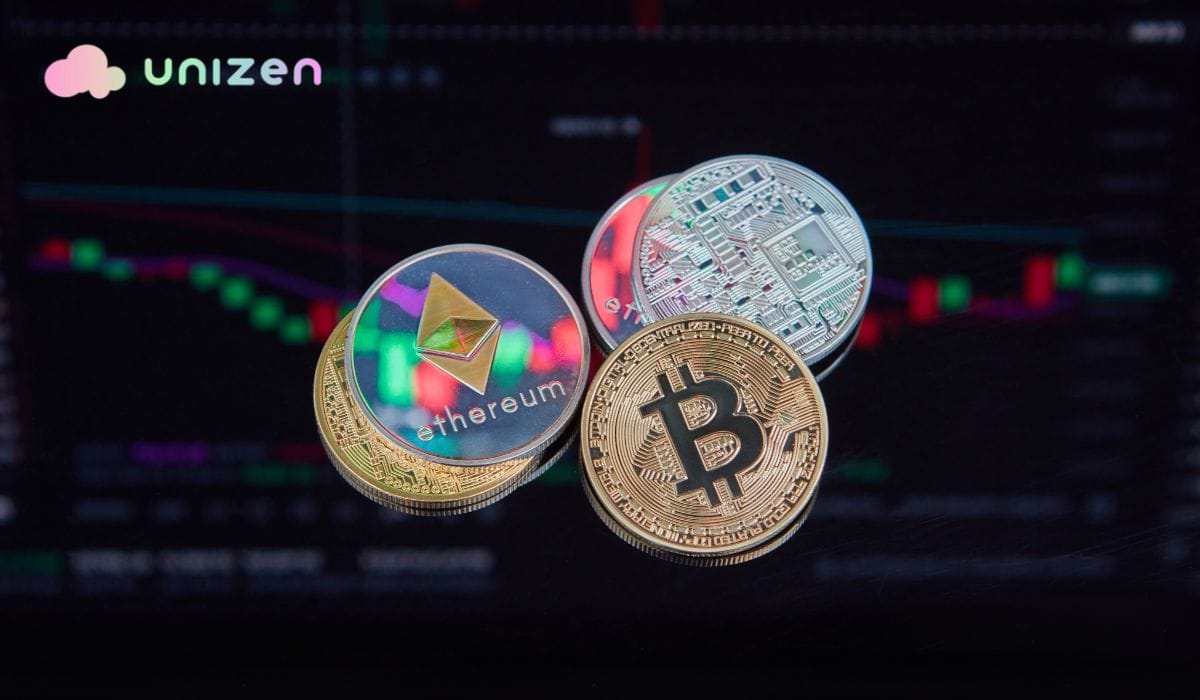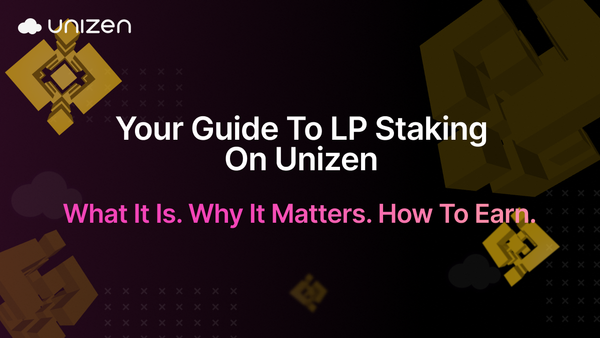What is Swap in Cryptocurrency? A Beginner's Guide on Crypto Swaps
Discover crypto swap essentials.

Cryptocurrency swap is one of the most talked about features of the crypto network. That's simply because it's a faster and more convenient method of switching one cryptocurrency for another. But there's more!
There are other noteworthy reasons why there's been a lot of hype around this process. For instance, crypto swaps enable traders to benefit from the fluctuations in the crypto market. The concept may seem simple, but swapping cryptocurrency can be complex.
Many new traders don't fully understand swapping, much less how to use it to make passive income. Thankfully, this article will explain what crypto swap is really about. When you finish reading this post, it should be clear what crypto swapping is and how to make money from it.
So, sit back and let's get started, shall we?
What is Swap in Cryptocurrency?
In simple terms, swapping crypto is the act of changing one cryptocurrency coin for another without first converting it to fiat. This method is beneficial for traders because exchanging crypto with another crypto does not require the involvement of third parties.
But why would anyone want to change one type of crypto for another in the first place? Well, holders usually use crypto tokens as keys to access and enjoy numerous advantages within the blockchain world they belong to.
Once you've bought a particular type of crypto, you can jump in and have your say in governing the blockchain by casting votes that shape the future of that specific crypto project. On top of all that, these crypto tokens let users stake their coins on any project they fancy and score some sweet rewards along the way.
Alright, now that we've got that covered, let's check out the various platforms that have got your back when it comes to crypto swapping.
Types of Platforms for Cryptocurrency Swaps
Normally, crypto swaps take place on cryptocurrency exchanges. However, depending on the base coding, these exchange platforms can either be centralized or decentralized.
According to Forbes, today we have over 600 cryptocurrency exchanges in the marketplace. These include centralized and decentralized exchanges where one can buy, sell and swap crypto. Some of the top ones by trading volume include:
Largest cryptocurrency exchanges based on 24h trade volume in the world on May 6, 2024(in billion U.S. dollars) (Retrieved from Statista)
Decentralized Exchanges
A decentralized exchange, commonly referred to as a DEX, is a system that allows users to trade crypto tokens with one another without an intermediary. In this type of setup, transactions are facilitated by self-executing agreements within the network called smart contracts.
Initially, the primary intention of DEX was to eliminate the need for oversight and let transactions occur peer-to-peer. So, what's so good about it? Well, users have full power over their private keys (these are intricate encryptions that safeguard users' access to cryptocurrencies).
Moreover, the private keys ensure that users are not required to provide their personal details like names or addresses. This characteristic of cryptocurrencies makes it easier for anyone to trade cryptos without revealing any information about themselves - privacy is very crucial in the crypto market.
Now, if you want to get the best returns on your decentralized swaps, check out Unizen. The platform will give you access to millions of assets despite their native blockchain or DEX platform. Also, it comes with innovative tools and features that can help you optimize your trading strategies and maximize your profits.
Centralized Exchanges
Centralized exchanges (CEX), on the other hand, are platforms where buyers and sellers get to buy, sell, and swap crypto assets. However, unlike decentralized exchanges, the platform is controlled by a central authority. Typically, being operated by a private company means the platform is subjected to the laws and regulations of every jurisdiction it operates.
Additionally, a CEX platform requires its users to sign up and open an account to participate in trading. Most CEX demand users go through an ID verification process (KYC) to trade. But once you've completed the registration process, you can easily indulge in different trading options, including swap, spot, and futures trading.
Central exchanges use a book order system to facilitate and complete trades within the platform. The order book is an electronic record list within the exchange, recording all buys and sells orders. It also displays the current price action of the specific token you are trading on.
Thanks to its robust security protocols, CEX have always been the go-to place for swap trading for most traders. What's more, the majority of the central exchanges are considered relatively easy to use if you need to buy, sell or swap cryptos.
Cryptocurrency Wallets with Swap Features
Cryptocurrency wallets are storage places for your private keys and provide users with an interface where you can manage your cryptos. Typically, these wallets support the transfer of cryptocurrencies across different blockchains.
Even though you can easily store your cryptos on an exchange, it's not usually advisable unless in small amounts with the intention of trading them. Over the past years, exchanges have collapsed with people's funds locked inside without the possibility of recovery, case and point, the collapse of FTX (a crypto exchange).
To this day, most people haven't been able to recover their cryptos from FTX, and they might not be able to. Thankfully, exchanges have improved their services by offering cold storage options (offline storage of cryptos), which are impenetrable to cyberattacks.
However, top traders with huge investments still go for crypto wallets since they offer better security for your tokens. Today, you can easily choose crypto wallets with swap features, making it easy to exchange your cryptos directly from your wallet without ever moving it to an exchange. Such wallets are easy to operate, and you can quickly exchange your cryptos for others.
Benefits of Cryptocurrency Swaps
Now, I'm sure you might be wondering, is swapping cryptocurrencies worth all the hype? Well, the answer to that question is a resounding yes! There are many upsides to crypto swaps, some of which we'll discuss in the section below:
Cost Efficiency
The most significant benefit of directly swapping crypto is the drastic decrease in transaction costs. In a customary trade, you have to convert one token into either a fiat currency or a major crypto like Ethereum or Bitcoin. The exchange medium is then used to buy the token the buyer actually wants.
The problem with this is that every step has transaction fees which can quickly accumulate to a huge sum if left unchecked. Swapping involves directly exchanging tokens for another, either in a safe crypto wallet or via a crypto app.
Since you don't have to go through so many steps, the overall costs of changing one token to another are reduced significantly.
Speed and Convenience
Cryptocurrency swaps provide unparalleled speed and convenience when trading digital assets. Since you are working with decentralized exchanges, the transactions are executed almost instantly through smart contracts.
People can directly trade from their wallets, removing the necessity of putting money into exchange platforms and awaiting confirmation. This streamlines the process, allowing for rapid execution of trades. Also, it enables users to react quickly to market movements and capitalize on trading opportunities.
And since the market runs 24/7, people can enter the market at any time without any downtime or limitations. They can trade whenever they want regardless of their location or time zone. Overall, this is what makes cryptocurrency swaps a desirable choice for traders who want a quick and uncomplicated entry into the digital assets markets.
Exploration of Blockchain Ecosystems
Crypto swaps provide users with a significantly larger pool of tokens than what traditional centralized exchanges can offer. This is the main reason why they have better chances to spread their investments across many different types of cryptocurrencies and look into specific markets that might not be present on these exchanges.
Moreover, the interoperability of swaps makes it easier to trade tokens across different blockchains, all thanks to cross-chain bridges and wrapped assets. This expands the range of trading opportunities available to users, enabling them to access tokens from different blockchain ecosystems.
The various types of tokens available in cryptocurrency swaps give users a wide range to choose from. This flexibility allows people to adjust their investment plans based on personal preferences and market trends.
Control Over Assets
Cryptocurrency swaps give users more control over their assets than centralized exchanges. On decentralized exchanges, people keep ownership of the funds they trade all the time. They can make trades from their personal wallets without putting money into an exchange first. This removes the custodial danger linked with centralized exchanges since users don't have to give up control over their assets to a third-party custodian.
Furthermore, users have complete authority over their private keys, providing better protection and safety against unauthorized entry or theft. Users can also take out their money whenever they want without being under the limits or experiencing delays caused by centralized exchanges.
This kind of control matches with the ideas of decentralization and financial independence, giving users the power to handle their assets by themselves without needing help from intermediaries or central authorities.
times
One of the major concerns users have when using crypto exchanges is privacy. Swaps improve user privacy since they let users make transactions without showing their details or going through any identity verification process.
Usually, centralized exchanges request users for KYC (Know Your Customer) details. This could have an impact on user privacy and create a potential danger of data being compromised. Cryptocurrency swaps concentrate more on the aspect of privacy since they enable direct trade among people without requiring intermediaries or third-party custodianship setups to be present.
This anonymity gives users more freedom and privacy when it comes to their financial transactions.
Risks and Drawbacks of Cryptocurrency Swaps
Cryptocurrency swaps can be advantageous in various ways, but they also have risks and shortcomings that users should consider:
Liquidity Challenges
Liquidity is crucial if you want to trade anywhere, even in decentralized exchanges. Some cryptocurrency swaps might have many different tokens they support but struggle with liquidity issues – especially when it comes to less popular or less frequently traded assets.
If liquidity is low, slippage can happen. This means the price you actually get may be quite different from what was initially expected - leading to bad trading results for users. Furthermore, it may be difficult to quickly enter or exit positions because of low liquidity.
That mostly happens in times of great market instability. So, it's crucial that traders thoroughly evaluate the liquidity of trading pairs on decentralized exchanges before they make trades. That ensures they don't end up exposing themselves to should do this so as not to unintentionally expose themselves to risks related to lack of liquidity.
Technical and Security Risks
Decentralized exchanges are safer than centralized ones, but they can still have security weaknesses. Problems with smart contracts, mistakes in code, and hacks g in the main blockchain protocols might lead to security problems and money losses for users.
Even if we use smart contracts that have been audited and follow good security methods, decentralized exchanges can still be hacked or attacked by bad people. Additionally, when you have a security problem in a cryptocurrency swap, it's not easy to track and get back any stolen money because of the anonymous way these transactions are done.
This means users need to be careful and use strong security methods like hardware wallets and multi-factor authentication to reduce risks related to security issues on cryptocurrency swaps.
Lack of Regulation
Another risk related to crypto swaps is the absence of regulatory monitoring. Decentralized exchanges function in a regulatory grey zone where there are often no specific rules or supervision from government authorities.
This kind of regulatory vagueness exposes users to fraud, market control, and security vulnerabilities. Just think about it: if there are no regulations, then people do not really have elaborate ways to handle disputes or dishonesty on the platform.
Also, if there's no requirement for regulatory compliance like KYC (Know Your Customer) and AML (Anti-Money Laundering) checks, it could increase the possibility of illegal activities and money being laundered. This might compromise the integrity of the platform and its users.
Market Manipulation and Front Running
Market manipulation methods like wash trading, spoofing, and front-running can still target decentralized exchanges. The absence of centralized supervision and monitoring systems makes these exchanges vulnerable to price manipulation and deception by dishonest parties who may exploit weaknesses in their trading protocols.
Front-running, especially, means arranging or postponing transactions to get an unjust advantage over other people in the market. Even though decentralized exchanges strive for transparency and autonomy, they can also become a platform for dishonest actions and market manipulation. Therefore, users should always keep their eyes open to these possibilities.
Practical Uses of Cryptocurrency Swaps
Crypto to Crypto Swap
Through crypto swap, you can easily exchange one cryptocurrency for another. For example, if you had Ethereum in your wallet and saw an opportunity, Bitcoin would go bullish this year because of the BTC halving.
You can initiate a swap by specifying the amount of BTC you'd like to buy. The next step would be to provide your Ethereum wallet address (ERC20 wallet). The decentralized platform or protocol will match your request with someone within the blockchain system who wants to exchange their BTC for Ethereum.
The swap will be executed automatically without needing you to engage with the seller. Upon completion, BTC will be credited to your wallet and the other party will get Ethereum in theirs. This entire operation happens in minutes. Remember, you will also have to incur the transaction fee as well.
Stablecoin Conversion
Stablecoins are cryptocurrencies with relatively stable price action, normally pegged to a real-life commodity, such as a fiat currency or financial instrument. An excellent example is USDT (Tether Coin). It's presumably pegged to the US dollar, so its price doesn't change that much.
Even though cryptos like BTC are pretty popular, they are highly volatile. This type of volatility is excellent for trading but it turns simple purchases into risky speculations for traders and sellers. And that's the essence of stablecoin.
You can easily change one stable coin for another, for instance, USDT to USDC. The next step is to pick an exchange that supports both of these stablecoins, then enter the amount of USDC you'd like. The platform will request your USDT address.
Finally, the exchange will match you with someone who's planning to sell their USDC for USDT. And once the transaction is completed, you will be rewarded with USDC in your wallet.
Cross-Chain Swap
Another practical use for swaps is the cross-chain migration of assets. You might want to move to another blockchain because of improved scalability and functionality. An excellent example is you might want to migrate from the Ethereum network and try out Polygon or Solana network.
You can use cross-chain swap protocols to move your assets from Ethereum to the target blockchain. All you have to do is offer the address of your target blockchain wallet and the assets you’d like to transfer. Most platforms offer cross-chain swaps and it’s instantaneous.
Traders can easily migrate their assets to a new blockchain simply because of lower transaction fees. For the longest time, Ethereum had really high trading fees, but since the new upgrade to ETH2, the fees have dropped. Several traders moved to platforms such as Solana which offered better transaction fees as opposed to the ERC20 network.
DeFi Liquidity Provision
Crypto swaps can also help in the provision of liquidity in DeFi (Decentralized Finance) platforms. Typically, when swapping your cryptos, chances are, you might encounter times when there’s no one willing to trade with you.
To counter such events, swapping allows other traders to offer their crypto as liquidity. In turn, the traders who offer liquidity to the network are rewarded with tokens (Liquidity Provider tokens). These tokens represent the share that you provided in the pool.
Liquidity provision is an excellent way to earn passive income. You can also optimize your returns by actively participating in cryptocurrency swaps within the DeFi system. That allows you to swap your cryptos for stablecoins and vice versa, adjusting your exposure based on personal preferences and market conditions.
NFT Swaps
Finally, you can use crypto swap to exchange your NFTs from one blockchain to NFTs on another blockchain network. That will involve the use of cross-chain NFT swap protocols to ensure a seamless exchange.
The process will include sharing a destination address on the target blockchain. The protocol will immediately match you with a suitable counterparty. That will ensure you have a secure swap of your NFTs.
Conclusion
To sum up, exchanging cryptocurrencies through swaps or decentralized exchanges (DEXs) is a groundbreaking method for trading digital assets. It gives users high levels of control, security, and secrecy.
Even though there are risks like smart contract weaknesses and unclear regulations, the advantages of cryptocurrency swaps highlight their importance in the development of financial markets.
Frequently Asked Questions
What are the most common examples of Crypto Swaps?
Examples of cryptocurrency swaps include Uniswap, SushiSwap, PancakeSwap, and 1inch Exchange. These decentralized exchanges facilitate peer-to-peer trading of digital assets directly from users' wallets using automated smart contracts.
Is Swapping Crypto Taxable?
Usually, converting one cryptocurrency to another is not considered a taxable event since it’s not considered ‘disposing’ of your assets. Simply holding cryptocurrencies shouldn't change your tax liabilities. However, you should consult with a tax professional to ensure compliance with tax regulations and accurately report transactions.
Are cryptocurrency swaps safe?
While cryptocurrency swaps offer enhanced security compared to centralized exchanges, they are not immune to risks. Smart contract vulnerabilities, liquidity issues, and potential for front-running attacks are among the security concerns associated with decentralized exchanges. Users should exercise caution and conduct thorough research before trading on cryptocurrency swaps.
How long does it take to swap your cryptocurrencies?
While it can be concerning not to see your swapped assets immediately, it's important to exercise patience. Typically, swaps can take up to 3-4 hours to complete. We advise waiting for this timeframe before taking further action.



